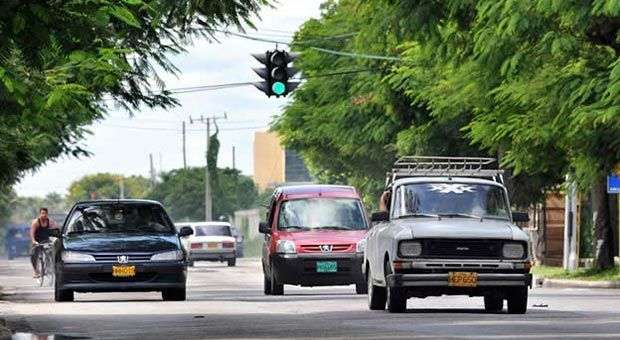New legal rules for the import and marketing of motor vehicles shall be published in the coming days in the Official Gazette, reports Granma newspaper in its Thursday edition.
It is “the retailing sales of motorcycles, cars, panels, vans and microbuses, brand new and second hand, for Cuban and foreign natural persons residing in the country as well as foreign legal entities and diplomats, setting prices similar to those recognized in the retail market among private individuals.”
“This free sale -adds the note, will be implemented gradually and progressively, and it will have priority who currently own letters of authorization. With the income raised Cuba will create a fund especially dedicated to the development of public transport throughout the country “.
“It also keeps the authorization of direct imports of new motor vehicles and resale to authorized importers and the diplomatic corps.”
“With the new regulations also continues the transfer of ownership among all owners, both domestic and foreign, and stays the limitation to Cuban and foreign legal entities from selling vehicles to individuals. The sale of internal combustion engines (gasoline and diesel) and body parts among individuals is permitted. In addition, the sale of bodies resulting from disarmament of vehicles is allowed to legal and natural persons “.
“The policy approved by the Council of Ministers prioritizes bicycle sales in the retail market, including power run ones, for which prices are established without revenue purposes , in order to encourage their use. It states that Cuba will ensure the availability of batteries, tires, accessories and spare parts, also prices without profitability character. “
“Similarly, it extends the period of one year established from October the first, 2011, for the transfer of ownership of vehicles belonging to those who definitely left the country before the enactment of Decree 292. This will allow completing the processes of this type that are still in process. “
“With these legal regulations additional steps are given to remove restrictions that eventually lost its reason for being, they make disappear red tape that left room for illegality, and a new source of income is encouraged for the development of public transportation, which is a priority of the Cuban state.”
What catalyzed this measure as reported by Granma?
Granma’s report explains that after several months of study, it was decided to remove the existing approval mechanisms for the purchase of motor vehicles from the State. This renders ineffective any authorization letters issued by the Ministry of Transport.
Among the problems that led to make such a clear decision: “When in October 2011 the first regulations were adopted, adjustments were made in the sale of second hand cars for both state and foreign entities and individuals. However, the fundamental limitations of this procedure remained . “
“The Sixth Congress of the Communist Party of Cuba, held in April of that year, agreed to prioritize the development of public passenger transport, devoting to this purpose all available funding. The cumulative decline in public transport and the benefits this means for most of the population were essential foundations on which the decision was based. They also took into account the limited road infrastructure that the country and the high cost of automotive fuel and the need to avoid increasing environmental pollution through the use of public transport is more efficient to move at any given time a greater number of people . “
“Specifically in the Guideline 286 reads: to establish the sale of motor vehicles among private individuals; however, they didn’t anticipate changes in sales policy by the State to individuals”.
“After expiry of this period it was demonstrated that while transfer of vehicle ownership among individuals has been developed smoothly, selling to individuals through the mechanism of the” letters of authorization “has proved inadequate and obsolete.”
“The low availability of cars, the restriction of this facility to a small group of selected occupational categories and the existence of another market selling at prices several times higher than those established by the trading company, generated discontent, dissatisfaction and, in many cases, this mechanism led to further bureaucratic problems and became a source of speculation and enrichment. “
“According to data from the National Registry of Vehicles, around 30% of sales in 2012 through the distributors changed ownership shortly after the auto enrollment in that register, which indicates that the administrative procedure motivated some people to make an extra income. It could also check that the Internet sales of those letters were made even before buying the vehicle. “










